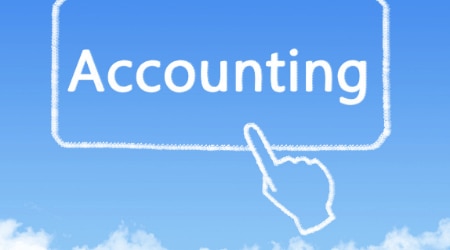The biggest cloud computing services — Amazon, Microsoft and Google — all offer excellent products at affordable prices with strong backup, security and service options. So if you’re asking yourself how you pick the best one for your small business, first understand what differentiates them from each other.
The Most Popular Cloud Platforms
Biggest Cloud Computing Players
Amazon Web Services
Amazon’s cloud offering is called Amazon Web Services (AWS) and it was the first of the major players to offer cloud services to the public in 2006. It makes up about 9 percent of Amazon’s sales.
Because of its scalability and the billing options that come along with such scalability, AWS is used by small businesses and huge enterprises alike. Large corporations like Netflix, Expedia and Adobe all use AWS because it offers a dependable and secure solution. AWS is the biggest of the cloud providers, and draws on a huge infrastructure and a wealth of experience.
For small businesses, AWS offers the capability of tapping into enterprise-quality cloud infrastructure with minimal investment and no need to have on-premises IT.
Microsoft Azure
Microsoft has put huge emphasis on the cloud and its revenue from Azure — its cloud business — has grown by 100 percent in the last year. This growth is in part because people in the business environment are already familiar with Office 365 and its applications.
Azure is used by about 80 percent of Fortune 500 companies including 3M and Boeing. 3M uses Azure to facilitate better ways to track assets. Boeing uses the cloud to predict aircraft maintenance and optimize fuel use. Other large companies like BMW and Heineken utilize Azure to promote and reach consumers via social marketing campaigns.
Though small businesses use Azure’s services on a much smaller scale, the services are attractive to small businesses for the same reasons as they are attractive to large companies.
Google Cloud Platform
The search giant offers an extensive array of cloud-based tools, but is in the unfamiliar position of playing catch up to its bigger rivals. Its years of experience with Gmail, YouTube and Google Drive, and its focus on new AI tools and energy efficiency means it is likely to soon match Amazon and Microsoft in its caliber of cloud offerings.
Spotify choses Google’s cloud platform because of its advanced data analytics, which is how it can provide playlists based on preferences and trends. Coca-Cola uses it too; recently to facilitate and amplify a World Cup marketing campaign.
Google differentiates itself by the sheer volume of options and products available.
As the market matures and grows, so do the options available for business owners ready to make the change. Choosing the right cloud solution for your small business is an important task, and you need to know what you are looking for and what you are getting into before committing to a provider.
Cloud Sectors
Before you commit to a cloud provider, determine the type of applications you want to perform on the cloud. Here’s a quick overview of the three sectors of cloud computing:
Software as a Service (SaaS)
Also known as on-demand software, the SaaS model allows businesses to license software that is centrally hosted by the provider at a remote location. Companies pay a monthly fee to use in whatever way they see fit.
This has significant advantages over traditional on-site installation. Updates, security and tech support are administered remotely by your provider, which reduces the burden on your own staff.
SaaS can also be scaled to your needs, and your price point. Since SaaS is cloud-based, the products often integrate well with other mobile applications.
For most small businesses, SaaS takes the form of communication tools such as Facebook and Twitter, document management via Dropbox or Google Drive and smaller CRM applications delivered via the cloud. QuickBooks Online is another popular SaaS option for small businesses because of its mobile capability and easy integration with other cloud-based financial apps.
Other sectors
In addition to SaaS, which is the most prominent sector, two other types of cloud services are used — infrastructure as a service (IaaS) and platform as a service (PaaS).
IaaS is buying access to computing resources, particularly hardware. IaaS isn’t used much by small businesses. Examples include Cisco Metapod and Joyent.
PaaS tends to be a more custom solution — popular among software developers — whereby a team develops their own applications but uses the world-class computing infrastructure of a major global player, eliminating the need to buy, set up and maintain a network of computers. Examples include Google App Engine and Force.com.
The biggest three companies — AWS, Azure and Google — that provide cloud services all provide scalable options, which makes them appealing to both large and small companies. For small businesses, SaaS solutions represent an ideal combination of mobility, efficiency and affordability. SaaS solutions alleviate the technical support burden on small businesses. No matter which company or model you choose, your provider does the homework and much of the legwork, leaving you free to concentrate your resources on the core of your small business.














